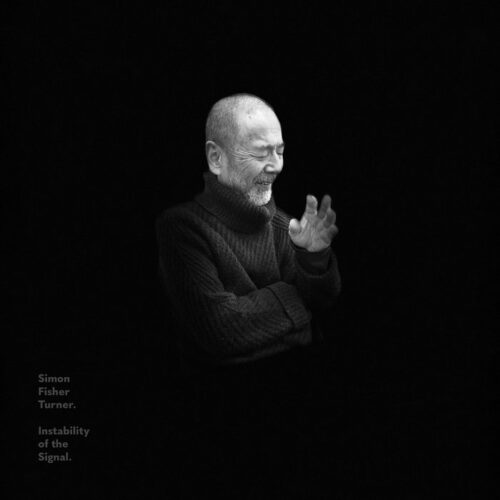“I’m singing how I feel I truly sound,” says Simon Fisher Turner of his latest album Instability of the Signal. How Turner sounds has been wildly variable over the years, from Simon Turner, the teen heartthrob of the three-day week, to the wonderful latter-80s foppish pop of The King of Luxembourg. Then there’s the music for films and installations, be it soundtracks for Derek Jarman or the Ivor Novello-winning score for the 1924 film The Epic of Everest. And not forgetting a recent soundscape collaboration concerning memory and objects with Edmund de Waal, or the ubiquitous helicopter ident that ran on the BBC about 15 years ago, a transportative time capsule that, once clicked upon, may unleash bygone memories and strange forgotten hankerings.
On Instability of the Signal, by his own admission, we’ve isolated the essence of Simon Fisher Turner. The reason it sounds so much like him is that it’s a patchwork of parts from his enviable history upon which he gets to project. It’s a collaborative album of sorts, with strings from The Elysian Collective, sound sources from former collaborations, and field recordings, too – as you might expect. You can hear a recording of a mechanical pencil sharpener made by Tilda Swinton’s father. You can also hear the percussive thud of tools hitting Edmund de Waal’s workshop floor, prominent at the conclusion of ‘She Lowers Her Arms’. The building blocks of Instability of the Signal are electronic snippets from David Padbury, looped and then expounded upon by Turner. It was whilst listening to the latter that he became inspired to sing again on this one.
The biggest surprise here is undoubtedly the vocals. Truant for decades, Turner’s diaphanous singing voice returns, rather suiting a gentleman who’ll officially become a septuagenarian this November. Songs with titles like ‘Manboyduet’ and ‘Toast’ blur the lines between late adulthood and inveterate teenhood, with the latter revealing details of interests like reading comic books which hint at the child but which could just as easily be sung from a present day perspective.
It’s been some time since Turner wrote and performed songs in the traditional sense, and while his words are arranged within the framework of what you might reasonably describe as songs, there’s still always an experimental edge that, at times, makes them a dissociative experience. They’re to be observed admiringly from a close distance like objets d’art, rather than garments to pick up and be worn casually in recognition of shared common experience. His way of looking at things is, to say the least, idiosyncratic. Take ‘Democracy’, a track with concerns about those we give power to govern over us. “There’s no escape / The big pricks are out / They fuck everything in sight,” he sings. It’s not the kind of political commentary you’re likely to hear from Emily Maitlis, at least not while she’s on air.
That all said, some of these songs are surprisingly infectious, too. ‘Barefeet’ has a stealthy catchiness and a simple, latent hook. If Turner’s career has followed a similar path to Scott Walker’s, as has often been remarked, then Instability of the Signal is his Soused, Walker’s late-entry baroque masterpiece with Sunn O))) which exhibits moments of humour and even the odd sly wink, with melodies that masquerade as pop provided the listener is an alien who’s just landed. Like Walker, Turner was an unhappy teen idol, and his existence as an artist has been defined in some ways by moving away from that experience. In both cases there’s an opaque vision that they’re working towards that’s not always immediately apparent to anyone else. Like Soused, Instability of The Signal gives us more of a glimpse than we’ve become accustomed to.



